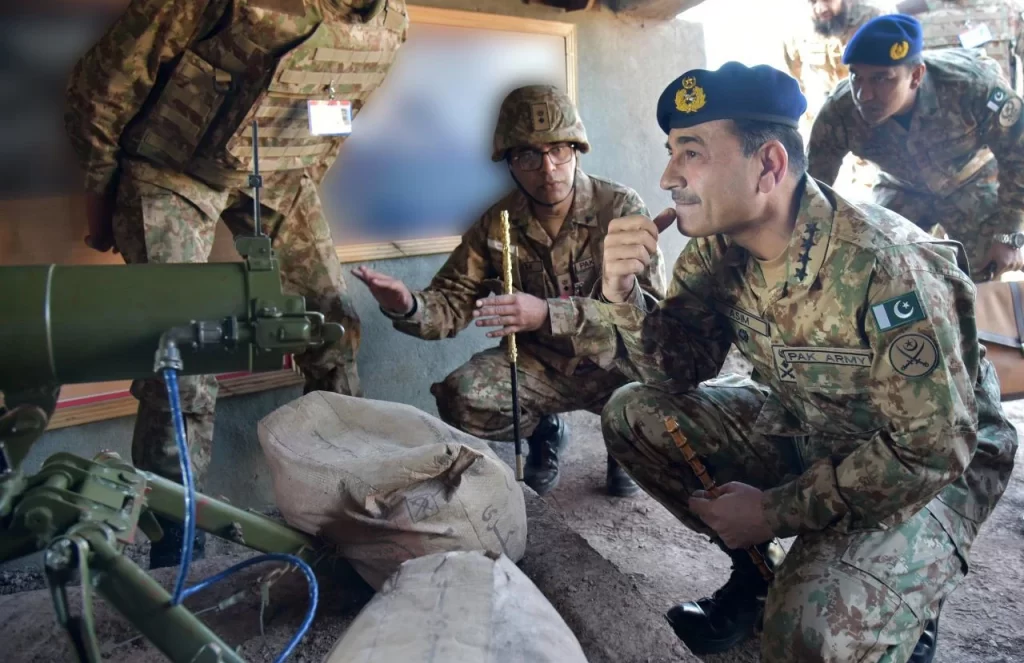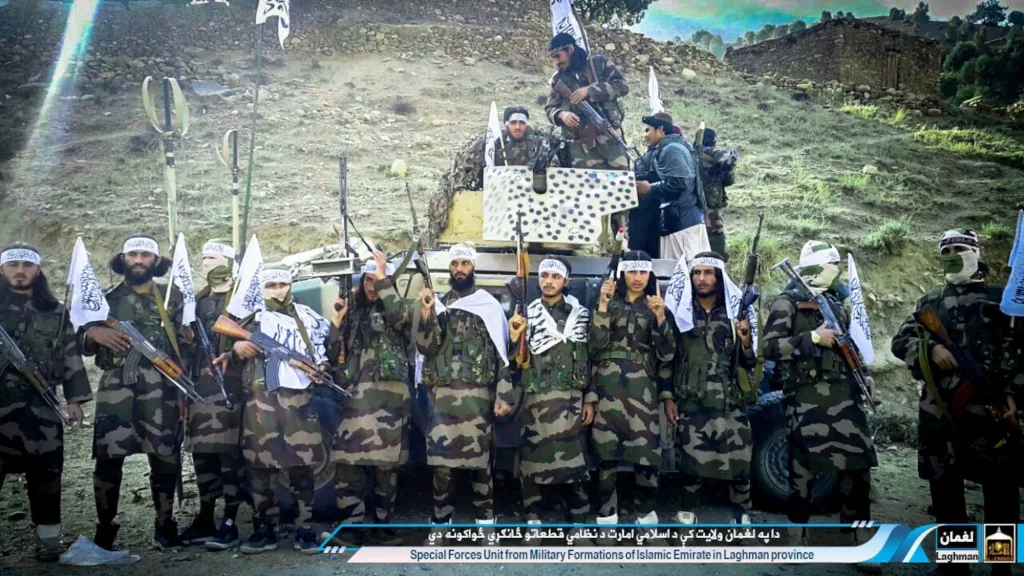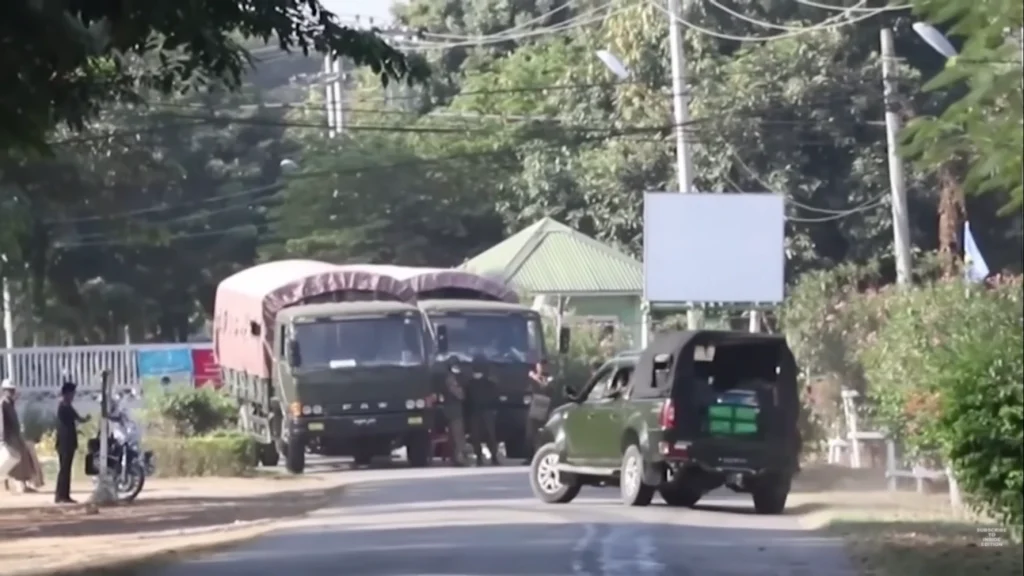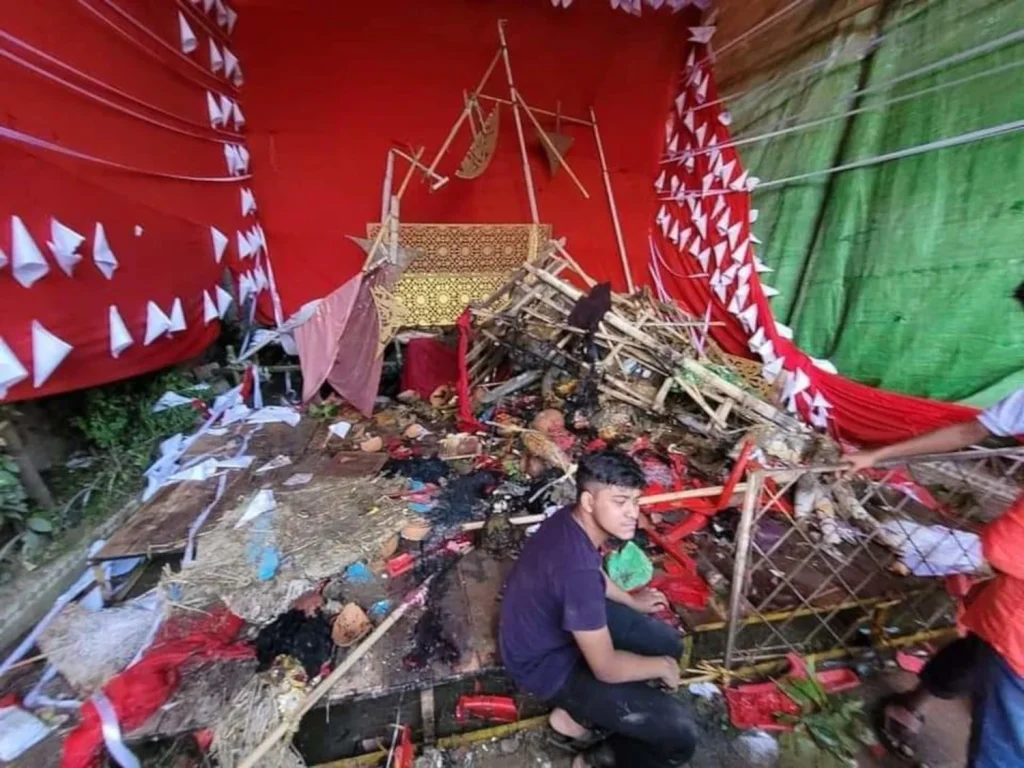Since August 1947, India has been fortunate to have a robust democracy. The initial years were dominated by the leadership that had an active role in the fight for freedom. In contrast, neighboring Pakistan saw immediate violence, the attack on Kashmir by Pakistan trying to use its regular army soldiers in the guise of irregulars. It joined the US-led SATO and CENTO, the active role of the CIA and its operations to seek information in China. The wars with India in 1965 and 1971 and the presence of military advisors marked its early years. The Chinese interest in Pakistan to reach the warm waters of the Arabian Sea and the development of the China-Pakistan Economic Corridor (CPEC) road to Gwadar highlights the region’s strategic importance, underscoring the urgency and significance of the geopolitical dynamics in the Indian subcontinent.
Pakistan: A History of Instability and Foreign Influence
Pakistan’s trajectory since its independence has been characterized by significant instability and foreign influence. The immediate violence post-independence, including the attack on Kashmir, set the tone for its future. The Pakistani military used regular army soldiers disguised as irregulars to create chaos in the region. This conflict with India began a series of military engagements and strategic alliances that would define Pakistan’s political landscape.
Pakistan quickly aligned itself with the US-led Southeast Asia Treaty Organization (SEATO) and Central Treaty Organization (CENTO), seeking support and protection from Western powers. This alignment brought the active role of the CIA into Pakistan, as the US aimed to gather intelligence on China and counter Soviet influence in the region. The wars with India in 1965 and 1971 further emphasized the strategic importance of Pakistan. The involvement of military advisors from the US and other Western countries was significant during these conflicts, providing training, intelligence, and logistical support to the Pakistani military, thereby underlining the extent of foreign involvement in Pakistan’s conflicts.
Early Violence and Kashmir Conflict
The partition of British India in 1947 led to the creation of India and Pakistan. The immediate aftermath saw significant communal violence, displacing millions and resulting in substantial loss of life.
The Kashmir conflict began soon after independence when Pakistan attempted to seize the region by sending regular army soldiers disguised as tribal militias. This led to the first Indo-Pak war, which ended in a UN-mediated ceasefire in 1949.
Alignment with US-led Alliances (SEATO and CENTO)
Pakistan’s strategic location made it an essential ally for the US during the Cold War. Pakistan joined the Southeast Asia Treaty Organization (SEATO) and Central Treaty Organization (CENTO) in the 1950s to counter Soviet influence in the region.
These alliances brought significant military and economic aid to Pakistan, along with the presence of CIA operatives who were involved in intelligence operations against China and the Soviet Union.
Wars with India and Foreign Military Advisors
The Indo-Pak wars of 1965 and 1971 were significant conflicts that shaped the region’s political landscape. The 1965 war ended in a stalemate, while the 1971 war resulted in the creation of Bangladesh, formerly East Pakistan.
During these wars, Pakistan received military assistance and advice from Western powers, particularly the US, which played a crucial role in training and equipping the Pakistani military.
Chinese Influence: Strategic Partnerships and Infrastructure
China’s strategic interest in Pakistan is driven by its need to reach the Arabian Sea, a critical route for its trade and energy supplies. This interest led to the development of the China-Pakistan Economic Corridor (CPEC) and the Gwadar Port, which is central to China’s Belt and Road Initiative (BRI). The CPEC project includes extensive infrastructure development, including roads, railways, and energy projects, to improve connectivity between China and Pakistan.
The development of Gwadar port is particularly significant as it provides China with a direct route to the Arabian Sea, bypassing the Strait of Malacca, a critical chokepoint in global trade. This strategic partnership underscores China’s long-term regional goals and desire to counter US influence. The Gwadar port is a potential military base, enhancing China’s strategic reach in the Indian Ocean.

China-Pakistan Economic Corridor (CPEC)
The CPEC is a flagship project under China’s Belt and Road Initiative (BRI), aimed at enhancing connectivity between China and Pakistan. It involves investments worth billions of dollars in infrastructure, energy, and industrial projects.
CPEC includes the development of highways, railways, and pipelines that connect China’s Xinjiang region to Pakistan’s Gwadar port, providing China with a strategic access point to the Arabian Sea.
Strategic Development of Gwadar Port
Gwadar port, located on Pakistan’s southwestern coast, is a deep-sea port developed with Chinese assistance. It is strategically significant for China as it provides an alternative route for its energy imports, bypassing the vulnerable Strait of Malacca.
The port is expected to serve as a critical hub for trade and logistics, enhancing China’s influence in the Indian Ocean region. There are also concerns that Gwadar could serve as a potential military base for China, further strengthening its strategic presence.
Afghanistan: From Democracy to Fundamentalism
Afghanistan’s journey from a democratic and liberal country to one under fundamental Islamist control highlights the impact of regime changes influenced by external powers and internal strife. Afghanistan has witnessed significant political turmoil in the last seven decades, with various factions vying for power.

During the 1970s and 1980s, Afghanistan was a battleground for Cold War rivalries. The Soviet invasion in 1979 led to a decade-long conflict, with the US and its allies supporting the Mujahideen fighters to counter Soviet influence. The withdrawal of Soviet troops in 1989 marked the beginning of a new era of instability, as various Mujahideen factions turned against each other, leading to a civil war.
The rise of the Taliban in the 1990s brought fundamentalist Islamists to power, pushing Afghanistan back to the stone age. The US-led invasion in 2001 aimed at dismantling the Taliban regime and establishing a democratic government. However, despite international efforts, Afghanistan remains unstable, with the Taliban regaining control in recent years.
The transition from Democracy to Islamist Control
Afghanistan was a relatively progressive and liberal country in the mid-20th century, with efforts to modernize and develop its economy and society.
The Soviet invasion in 1979 triggered a prolonged conflict, with the US and other Western powers supporting the Mujahideen fighters. The withdrawal of Soviet forces in 1989 led to a power vacuum and a civil war among various factions.
External Influences and Internal Conflicts
The rise of the Taliban in the 1990s brought a fundamentalist Islamist regime to power, enforcing strict Sharia law and reversing many of the social and economic gains of the previous decades.
The US-led invasion in 2001 aimed to dismantle the Taliban regime and establish a democratic government. Despite significant international efforts, including military and economic aid, Afghanistan remains unstable, with the Taliban regaining control after the withdrawal of US and NATO forces in 2021.
Nepal: The Chinese Influence and Youth Communism
Nepal’s political landscape has been significantly influenced by China, particularly in recent years. The killing of King Birendra and his family in 2001 marked a turning point in Nepal’s history, leading to the end of the monarchy and the establishment of a federal democratic republic. The political vacuum created by the assassination was filled by a rise in communist influence, particularly among the youth.
China has actively engaged with Nepal, providing economic and military assistance to strengthen its ties. Despite being a majority Hindu country, Nepal’s relations with India have been strained, partly due to India’s perceived interference in its internal affairs. The Chinese influence has further complicated the situation as Nepal seeks to balance its relations with India and China.
Chinese Influence in Nepal’s Monarchy and Politics
The assassination of King Birendra and his family in 2001 led to the abolition of the monarchy and the establishment of a federal democratic republic in Nepal.
China has been actively involved in Nepal’s political landscape, providing economic and military assistance to strengthen bilateral ties. This influence is evident in various infrastructure projects and trade agreements between the two countries.
Shifts Towards Communism Among Youth
The political vacuum created by the assassination of King Birendra was filled by a rise in communist influence, particularly among the youth. The Maoist insurgency, which began in the mid-1990s, gained significant support and led to a decade-long civil war.
The Maoists eventually entered mainstream politics, forming alliances with other leftist parties and playing a crucial role in shaping Nepal’s political future. The influence of communist ideology among the youth remains strong, impacting the country’s political dynamics.
Sri Lanka: Strategic Importance and Chinese Debt Trap
Sri Lanka’s strategic location on the Sea Lines of Communication (SLOCs) makes it a crucial point of interest for regional powers. The country has faced internal conflicts, including the Tamil and Sinhala insurgencies, which attracted the involvement of foreign military advisors. The Indian Peace Keeping Force (IPKF) intervention in the late 1980s aimed to stabilize the situation but faced significant challenges.
The killing of the LTTE leader, Velupillai Prabhakaran, brought a brief period of peace, but the regime’s tilt towards China for infrastructure development led to significant economic challenges. Sri Lanka’s reliance on Chinese loans for projects, such as the Hambantota port, resulted in a debt trap, forcing the country to lease the port to China for 99 years. The economic crisis post-COVID and India’s bailout kept the relationship on track, highlighting the delicate balance Sri Lanka must maintain between regional powers.
Strategic Location on SLOCs
Sri Lanka’s location on the Sea Lines of Communication (SLOCs) in the Indian Ocean makes it strategically important for regional and global powers. It is a critical hub for maritime trade routes connecting Asia, Africa, and Europe.
The country’s strategic importance has attracted significant attention from regional powers, including India and China, seeking to enhance their influence in the Indian Ocean region.

Insurgencies and Foreign Military Advisors
Sri Lanka has faced prolonged internal conflicts, including the Tamil and Sinhala insurgencies, which led to significant loss of life and displacement. These conflicts attracted the involvement of foreign military advisors, including the Indian Peace Keeping Force (IPKF) intervention in the late 1980s.
The IPKF intervention aimed to stabilize the situation but faced significant challenges and eventually withdrew in 1990. The killing of LTTE leader Velupillai Prabhakaran in 2009 brought an end to the decades-long civil war.
Chinese Debt Trap and Indian Bailout
Sri Lanka’s tilt towards China for infrastructure development led to significant economic challenges. The reliance on Chinese loans for projects, such as the Hambantota port, resulted in a debt trap, forcing the country to lease the port to China for 99 years.
The economic crisis post-COVID and India’s bailout kept the relationship on track, highlighting the delicate balance Sri Lanka must maintain between regional powers.
Bhutan: Peaceful Yet Strategic
Bhutan, known for its high Human Happiness Index, faces strategic pressures from China. The tiny Himalayan kingdom has managed to maintain its sovereignty and cultural identity, but the growing Chinese influence poses significant challenges. India has a strong presence in Bhutan through the Indian Military Training Team (IMTRAT) in Thimphu, which advises the King and boosts the military capabilities of the Bhutanese Army.
Bhutan’s strategic location between India and China makes it a critical player in regional power dynamics. In recent years, the regime in Thimphu has warmed up to China, seeking to balance its relations with both neighbors. This shift has raised concerns in India, which sees Bhutan as a crucial ally in maintaining regional stability.
Strategic Pressures from China
Bhutan faces significant strategic pressures from China, particularly in the disputed border areas. The Doklam standoff in 2017 between India and China highlighted Bhutan’s strategic importance in regional power dynamics.
China has been increasing its influence in Bhutan through economic and diplomatic means, challenging Bhutan’s traditionally close ties with India.
Indian Military Advisory Presence
India has a strong presence in Bhutan through the Indian Military Training Team (IMTRAT) in Thimphu, which advises the King and boosts the military capabilities of the Bhutanese Army.
The presence of IMTRAT underscores the close military and strategic ties between India and Bhutan. India’s support is crucial for Bhutan’s defense and security, particularly in the face of growing Chinese influence.
Myanmar: A Backyard of Power Play
Myanmar has long been a backyard for Chinese power play, with China providing support to both the military and insurgent groups. This support has helped China maintain regional influence and counter Indian interests. The US also has interests in Myanmar, supporting insurgent groups through covert operations to establish a regime that would help contain China.
The military coup in 2021, which ousted the democratically elected government, further complicated the situation. The coup has led to widespread protests and violence, with the military cracking down on dissent. The international community, including the US and its allies, has condemned the coup, imposing sanctions on the military junta. However, China has continued to engage with the military regime, providing economic and diplomatic support.

Chinese Support for the Military and Insurgent Groups
China has long provided support to the Myanmar military, as well as various insurgent groups, to maintain its influence in the region. This support includes economic aid, arms supplies, and diplomatic backing.
Chinese influence in Myanmar counterbalances Indian interests as both countries vie for strategic influence in Southeast Asia.
US Interests in Containing China
The US has strategic interests in Myanmar, aiming to counter Chinese influence. This includes supporting insurgent groups and promoting democratic governance to weaken the military regime aligned with China.
The US has imposed sanctions on the Myanmar military junta following the 2021 coup, condemning the crackdown on protests and violence against civilians.
Bangladesh: A Battleground of Vested Interests
Given its strategic location, Bangladesh’s political landscape has been shaped by the interests of the US, China, and Pakistan. The recent resignation of Sheikh Hasina, Bangladesh’s long-serving prime minister, and her subsequent move to India highlight the close relationship between the two nations. Hasina led Bangladesh, a country of 170 million people, for nearly 15 years until student protests against civil service quotas escalated into a widespread and violent anti-government movement, resulting in at least 280 deaths in clashes with police.
The ongoing political unrest in Bangladesh has essential consequences for India, which has a strong interest in the country’s stability and security as a neighboring nation. Concerns such as the rise of extremist groups, an influx of refugees, and possible cross-border tensions require careful management by India. Additionally, other regional powers like China and Russia have observed India’s response to the situation, which has remained largely silent. In the fiscal year 2023-24, bilateral trade between the two countries reached USD 14.01 billion.
Strategic Location and Foreign Interests
Bangladesh’s strategic location makes it a battleground for the vested interests of regional and global powers, including the US, China, and Pakistan. Its proximity to the Bay of Bengal and significant ports makes it crucial for trade and strategic influence.
The recent political upheaval, marked by Prime Minister Sheikh Hasina’s resignation, underscores the complex interplay of foreign influences and internal dissent in Bangladesh.

Political Upheaval and Sheikh Hasina’s Resignation
The resignation of Sheikh Hasina and her move to India highlights the close relationship between the two countries. Hasina led Bangladesh for nearly 15 years, but recent student protests and anti-government movements led to her resignation.
The political vacuum in Bangladesh poses new challenges for India, which is intensely interested in maintaining stability and security in its neighboring country.
Consequences for India
The ongoing political unrest in Bangladesh has significant consequences for India. India is a neighboring country interested in Bangladesh’s stability and security. The rise of extremist groups, an influx of refugees, and possible cross-border tensions are significant concerns for India. Sheikh Hasina’s recent resignation and move to India highlight the close relationship between the two countries. However, the political vacuum in Bangladesh poses new challenges.
The political unrest in Bangladesh requires India’s careful management. Regional powers like China and Russia closely observe India’s response. In the fiscal year 2023-24, bilateral trade between India and Bangladesh reached USD 14.01 billion, emphasizing the economic significance of stable relations. The invitation to Sheikh Hasina to fly to Delhi to escape lynching at the hands of the people was a well-executed plan, with the Bangladesh Army supporting this operation. India has done well to save the daughter of Sheikh Mujibur Rehman and keeps his legacy alive along with her not-so-popular sister. The US has revoked her visa for apparent reasons, and the UK will swing in response to the mood in Washington, DC. Sheikh Hasina will likely stay in Delhi and, as most political commentators state, will write her memoirs.
Concerns About Extremist Groups and Refugee Influx
The political unrest in Bangladesh has raised concerns about the rise of extremist groups, which could destabilize the region and pose security threats to India. The influx of refugees from Bangladesh to India is another primary concern, as it could strain resources and create social tensions.
India must carefully manage its border security and strengthen its counter-terrorism efforts to address these challenges.
Importance of Bilateral Trade and Economic Stability
The economic relationship between India and Bangladesh is significant, with bilateral trade reaching USD 14.01 billion in the fiscal year 2023-24. Maintaining stable and friendly relations with Bangladesh is crucial for India’s economic interests.
Political instability in Bangladesh could disrupt trade and economic cooperation, impacting both countries’ economies. India needs to engage diplomatically to ensure continuity in economic relations.
Strategic Management of Political Unrest
India must strategically manage the political unrest in Bangladesh. Regional powers like China and Russia observe India’s response, and any misstep could have broader geopolitical implications.
India needs to engage in diplomatic efforts to support stability in Bangladesh and safeguard its strategic interests.
Geopolitical Implications
Bangladesh plays a crucial role in the region, sharing land borders with Myanmar and India. It has three of the twelve ports in the Bay of Bengal—Chattogram, Mongla, and Payra—making it a critical link between South and Southeast Asia. Consequently, any regional collaboration involving major trade blocs like ASEAN and SAARC must include Bangladesh. The country is also an important geopolitical partner for India, as it can enhance connectivity between Northeast and Central India.
Conversely, Bangladesh is also a strong candidate for collaboration with China in the proposed “String of Pearls” strategy and development of the “Maritime Silk Road.” This potential partnership has not gone unnoticed by China’s Western rivals, including India, which have begun to strengthen their ties with Bangladesh. This shift has transformed Bangladesh from a nation of geopolitical insignificance to a significant player in shaping Asia’s future.
Strategic Importance of Ports and Regional Connectivity
Bangladesh’s strategic location and ports—Chattogram, Mongla, and Payra—make it a critical link between South and Southeast Asia. These ports are crucial for regional trade and connectivity, enhancing Bangladesh’s geopolitical significance.
Bangladesh must be included in a regional collaboration involving major trade blocs like ASEAN and SAARC, as it is a critical hub for trade routes and economic integration.
Potential Collaboration with China
Bangladesh is a strong candidate for collaboration with China in the proposed “String of Pearls” strategy and the development of the “Maritime Silk Road.” These initiatives aim to enhance China’s strategic influence in the Indian Ocean.
This potential partnership has raised concerns among China’s Western rivals, including India, which have begun to strengthen their ties with Bangladesh to counterbalance Chinese influence. Bangladesh’s role in these strategic initiatives highlights its growing importance in regional power dynamics.
Proxy War Game
The presence of radical Islamist groups further complicates the political landscape in Bangladesh. Jamaat-e-Islami has emerged as the most successful Islamic organization in establishing a solid social and political base in Bangladesh. With branches in multiple countries, it has garnered international support, and its alliance with the BNP has further solidified its position within the predominantly Muslim community in Bangladesh.
It is important to remember that the “Razakars,” who were created by the Pakistani military to gain local support and intelligence, were primarily Urdu-speaking migrants who came to East Pakistan from present-day India during the partition. They served as an auxiliary force to help suppress the rebellion in East Pakistan.
Influence of Radical Islamist Groups
Radical Islamist groups like Jamaat-e-Islami have established a significant social and political base in Bangladesh. These groups have garnered international support and formed alliances with major political parties, such as the BNP, to solidify their influence.
The presence of these groups complicates the political landscape, as they often advocate for policies that can lead to social unrest and conflict.
Historical Context of Razakars
The term “Razakar” refers to collaborators who supported the Pakistani military during the 1971 liberation war. These groups were primarily Urdu-speaking migrants who came to East Pakistan from present-day India during the partition.
The legacy of the Razakars continues to impact Bangladesh’s political landscape, as their actions during the liberation war are remembered with resentment by many Bangladeshis.
Violence and Instability
The term “Razakar” has become synonymous with collaborators and anti-liberation forces, often viewed as pro-Pakistan. Bangladesh has not experienced such violence since its liberation war in 1971, leading to the belief that establishing an interim government could be the most effective solution to promptly restore order in the country.
Internal Dissent and External Interference
A combination of internal dissent and external interference drives the current violence in Bangladesh. Political opposition groups, often supported by external actors, are fueling unrest to destabilize the government.
External interference from countries like Pakistan and China further complicates the situation, as these powers have strategic interests in influencing Bangladesh’s political landscape.
Calls for Establishing an Interim Government
The ongoing violence has led to calls for establishing an interim government to restore order and stability in Bangladesh. An interim government could provide a neutral platform to address political grievances and pave the way for free and fair elections.
However, establishing an interim government would require broad political consensus and support from key stakeholders, including the military and international community.
US Sanctions and International Reactions
In December 2021, the US imposed sanctions on the Rapid Action Battalion (RAB) and several of its officials, as this elite paramilitary unit has been accused of enforced disappearances and extrajudicial killings for the government. A year later, US Ambassador Peter Haas met with families of victims of these alleged abuses under Prime Minister Hasina’s administration. In February, Derek Chollet from the US State Department cautioned Dhaka that democratic backsliding could hinder American cooperation and urged Hasina to ensure free and fair elections. Hasina responded by accusing the US of attempting to overthrow her government.
US Sanctions on Rapid Action Battalion (RAB)
The US imposed sanctions on the Rapid Action Battalion (RAB) in December 2021, citing allegations of enforced disappearances and extrajudicial killings. These sanctions targeted several RAB officials and aimed to pressure the Bangladeshi government to address human rights abuses.
The sanctions have strained US-Bangladesh relations and raised concerns about the impact on bilateral cooperation and security assistance.
Accusations of Democratic Backsliding
The US has expressed concerns about democratic backsliding in Bangladesh, cautioning that such trends could hinder American cooperation. The State Department has urged the Bangladeshi government to ensure free and fair elections and address human rights issues.
Prime Minister Hasina has responded by accusing the US of attempting to overthrow her government, highlighting the tensions between the two countries.
China and the Belt and Road Initiative (BRI)
Meanwhile, China has made significant investments in Bangladesh, mainly through the Belt and Road Initiative, funding 90% of new energy projects in the country. This has led to US skepticism regarding Hasina’s ties with China. While the Biden administration has criticized democratic regression in Bangladesh, it has continued to prioritize short-term geopolitical interests in Pakistan.
Chinese Investments Through Belt and Road Initiative (BRI)
China has invested substantially in Bangladesh as part of its Belt and Road Initiative (BRI). These investments include funding for infrastructure and energy projects, with China financing 90% of new energy projects in Bangladesh.
The BRI projects aim to enhance connectivity and economic integration between China and Bangladesh, strengthening China’s regional strategic influence.
US Scepticism Regarding Bangladesh’s Ties with China
The US has expressed skepticism about Prime Minister Hasina’s ties with China, particularly in light of significant Chinese investments and influence in Bangladesh. The US is concerned about the implications of China’s growing presence in the region.
Despite these concerns, the Biden administration has prioritized short-term geopolitical interests in Pakistan, balancing its strategic focus in South Asia.
Role of Radical Islamist Groups
“Radical Islamist groups like Harkat-ul-Jihad-al-Islami (Huji) have also contributed to the unrest, allegedly inciting violence and anti-India sentiment, with the Jamaat-e-Islami and ICS using the guise of advocating for democracy and human rights to gain international support. This turmoil has led to rising demands for independence and attacks on minorities in Bangladesh, creating a precarious situation that raises concerns about the country’s future stability and its relations with India.
Influence of Radical Islamist Groups
Radical Islamist groups like Harkat-ul-Jihad-al-Islami (Huji) and Jamaat-e-Islami have played a significant role in contributing to the unrest in Bangladesh. These groups have incited violence and anti-India sentiment, complicating the political landscape.
These groups often use the guise of advocating for democracy and human rights to gain international support, masking their radical agendas and influencing public opinion.
Rising Demands for Independence and Attacks on Minorities
The unrest in Bangladesh has led to rising demands for independence and increased attacks on minorities, creating a precarious situation. The violence and instability have raised concerns about the country’s future stability and relations with neighboring India.
The involvement of radical Islamist groups in these demands and attacks further complicates efforts to restore order and stability in Bangladesh.
Conclusion
It was navigating the Complex Landscape. India faces significant challenges with political instability in neighboring countries and the strategic maneuvers of global powers. Ensuring strong counterintelligence measures, stemming illegal immigration, and maintaining robust defense capabilities are crucial for India’s security and regional influence. The recent resignation of Sheikh Hasina and the ongoing political unrest in Bangladesh highlights the delicate balance India must maintain in its foreign policy.
Challenges from Political Instability and Strategic Manoeuvres
India faces significant challenges from political instability in neighboring countries, including Bangladesh. The strategic maneuvers of global powers, such as China and the US, further complicate the regional dynamics.
Ensuring regional stability and maintaining India’s strategic influence require careful diplomatic relations management and proactive engagement with neighboring countries.
Importance of Counterintelligence and Defense Measures
Ensuring strong counterintelligence measures is crucial for India’s security. Monitoring and addressing external influences, particularly from radical Islamist groups and foreign powers, is essential to maintaining internal stability.
Maintaining robust defense capabilities is also critical for safeguarding India’s borders and protecting its regional interests. This includes addressing threats from illegal immigration and cross-border terrorism.
Strategic Management of Regional Relationships
India is a unique country that has to deal with three Armies that own it: Bangladesh in the East, China in the North, and Pakistan in the West. Military Diplomacy is crucial for managing belligerent neighbors.
The recent resignation of Sheikh Hasina and the ongoing political unrest in Bangladesh highlights the need for strategic management of regional relationships. India must engage diplomatically to support stability in Bangladesh and ensure its strategic interests are safeguarded.
Strengthening economic and security ties with neighboring countries while balancing relations with global powers is essential for maintaining regional stability and enhancing India’s influence in South Asia.
